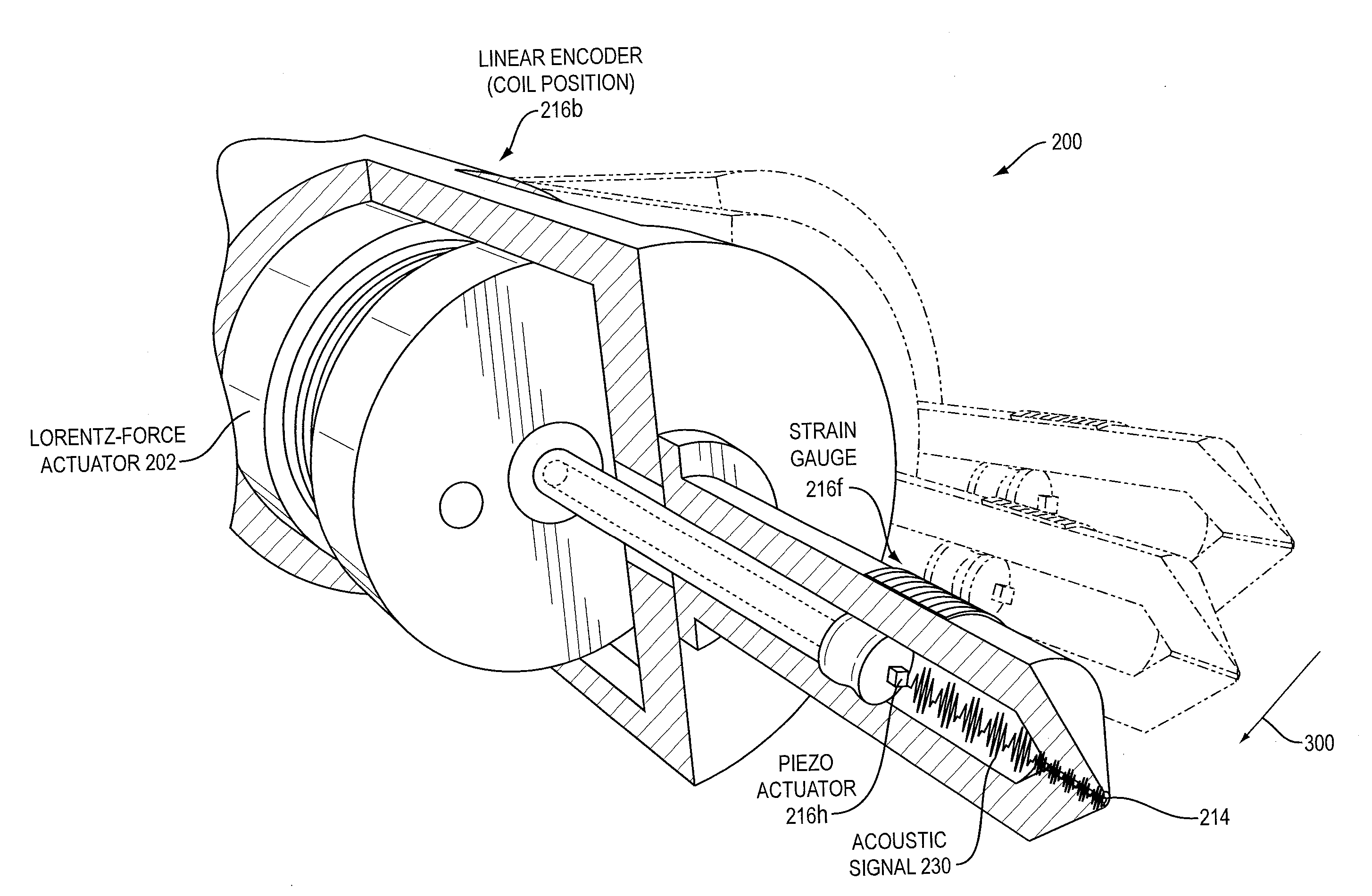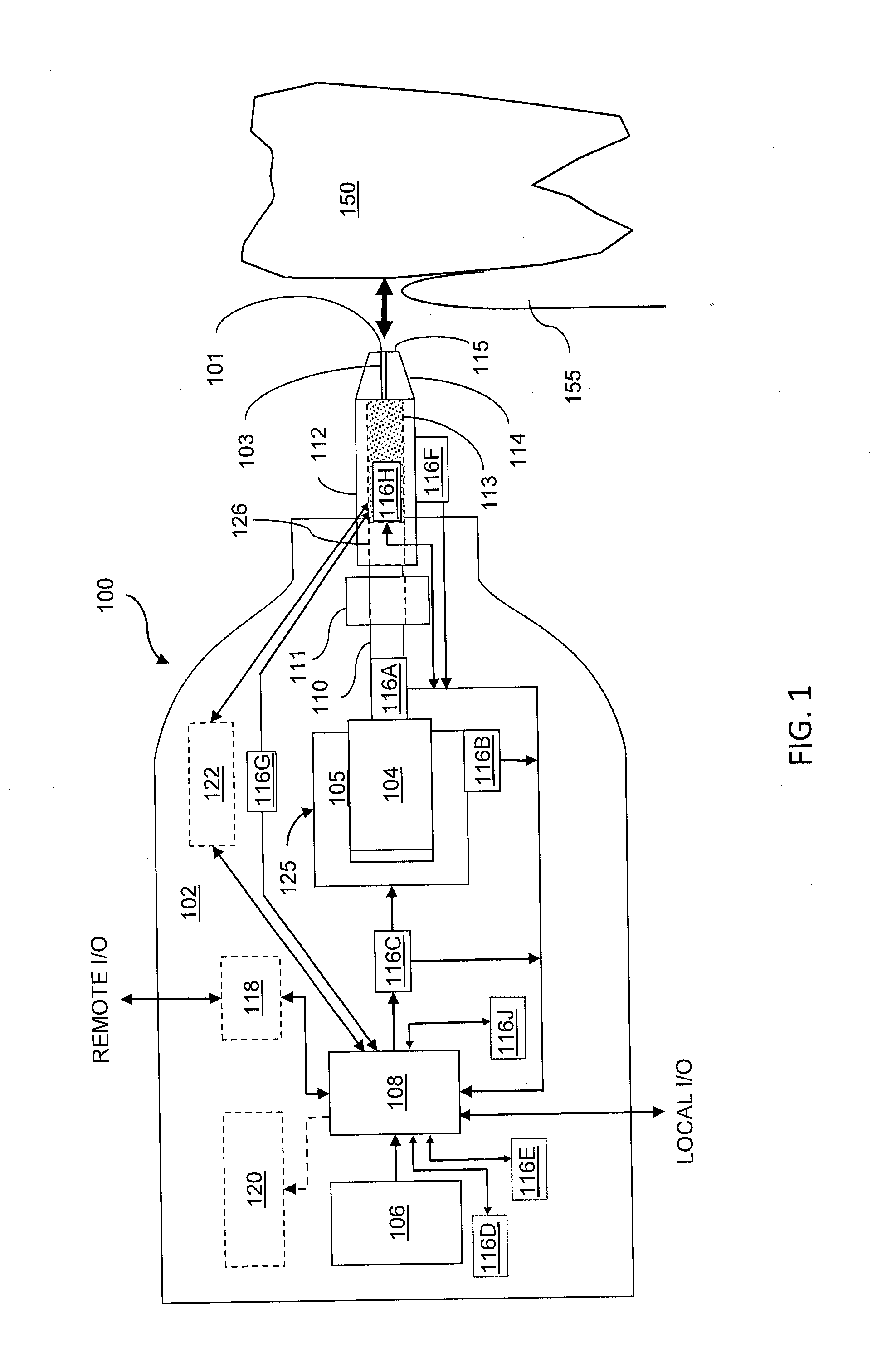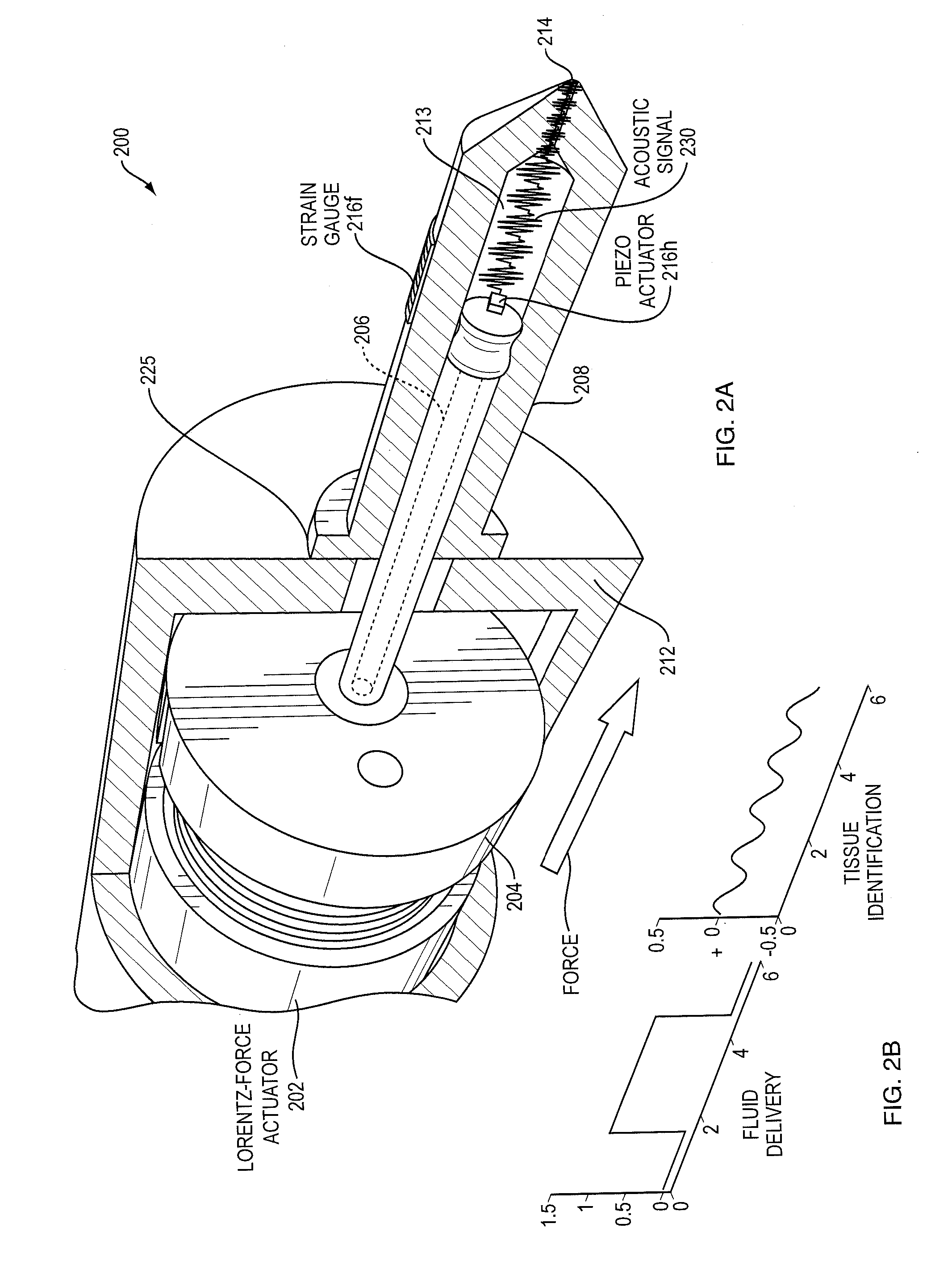Plaque Removal and Differentiation of Tooth and Gum
a technology of tooth and gum, which is applied in the field of tooth and gum plaque removal and differentiation, can solve the problems of deep pockets between teeth and gums, loss of bone that holds teeth in place, and noisy pumps in these units, and contribute to patient discomfor
- Summary
- Abstract
- Description
- Claims
- Application Information
AI Technical Summary
Benefits of technology
Problems solved by technology
Method used
Image
Examples
Embodiment Construction
"d_n">[0024]FIGS. 5A-5D are perspective diagrams showing delivery of water and black beads to the gum line and sulcus;
[0025]FIG. 6 is a top perspective diagram of an exemplary detector for detecting an analyte from a sample collected in a disposable tube;
[0026]FIGS. 7A and 7B are schematic block diagrams of a needle-free transport device providing sampling and analysis capability, respectively shown in the sampling and fluid ejection configurations;
[0027]FIG. 8 is a top perspective diagram of an exemplary detector for detecting an analyte using a polymer strip;
[0028]FIG. 9A is a schematic diagram showing binding of an analyte (antibody) to a solid support (polypyrrole film strip);
[0029]FIG. 9B is a graph of light absorbance versus antigen concentration;
[0030]FIG. 10 is a schematic diagram showing a detector for detecting a marker or analyte of oral health status.
DETAILED DESCRIPTION OF THE INVENTION
[0031]A description of example embodiments of the invention follows.
[0032]The entire ...
PUM
 Login to View More
Login to View More Abstract
Description
Claims
Application Information
 Login to View More
Login to View More - R&D
- Intellectual Property
- Life Sciences
- Materials
- Tech Scout
- Unparalleled Data Quality
- Higher Quality Content
- 60% Fewer Hallucinations
Browse by: Latest US Patents, China's latest patents, Technical Efficacy Thesaurus, Application Domain, Technology Topic, Popular Technical Reports.
© 2025 PatSnap. All rights reserved.Legal|Privacy policy|Modern Slavery Act Transparency Statement|Sitemap|About US| Contact US: help@patsnap.com



